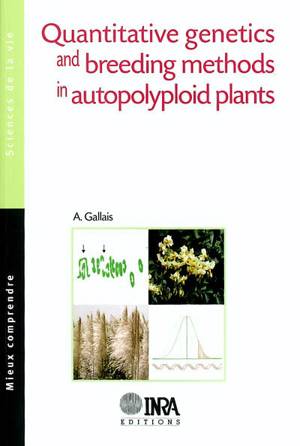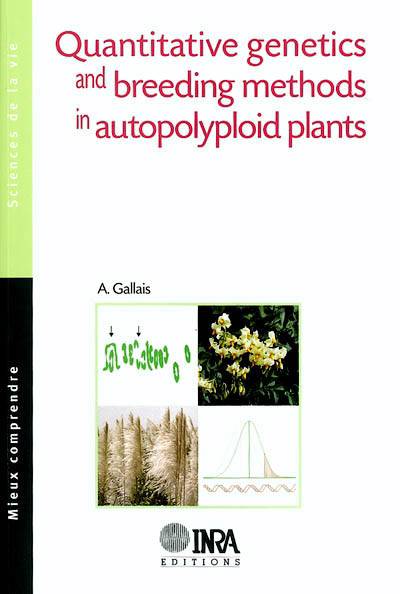
- Retrait gratuit dans votre magasin Club
- 7.000.000 titres dans notre catalogue
- Payer en toute sécurité
- Toujours un magasin près de chez vous
- Retrait gratuit dans votre magasin Club
- 7.000.0000 titres dans notre catalogue
- Payer en toute sécurité
- Toujours un magasin près de chez vous
Quantitative genetics and breeding methods in autopolyploid plants
André GallaisDescription
In autopolyploid species, as a result of the polyploidy of gametes themselves, there is
a tendency toward an association between parental homologous genes. In this book,
the consequences of such a particularity are described at different levels : population
genetics (including effect of natural selection), quantitative genetics (including QTL
detection), plant breeding methods (including marker-assisted selection) and varietal
development. Theoretical developments mainly focus on autotetraploids though
many results refer to an arbitrary ploidy level, diploidy becoming a specific case.
Concepts in population genetics and quantitative genetics are redefined
and differences with diploidy are underlined. The case of induced tetraploids
is addressed throughout the different chapters.
This book is intended for researchers, lecturers and students faced with problems
of population genetics, quantitative genetics and breeding methods
of autopolyploids. It will provide them with a definition of the major concepts
adapted to an arbitrary ploidy level. Plant breeders working on natural or induced
autopolyploids will also find here the elements required to implement the best
selection and varietal development methods.
Spécifications
Parties prenantes
- Auteur(s) :
- Editeur:
Contenu
- Nombre de pages :
- 515
- Langue:
- Anglais
Caractéristiques
- EAN:
- 9782738010933
- Date de parution :
- 25-11-03
- Format:
- Livre broché
- Dimensions :
- 160 mm x 240 mm
- Poids :
- 904 g

Les avis
Nous publions uniquement les avis qui respectent les conditions requises. Consultez nos conditions pour les avis.






